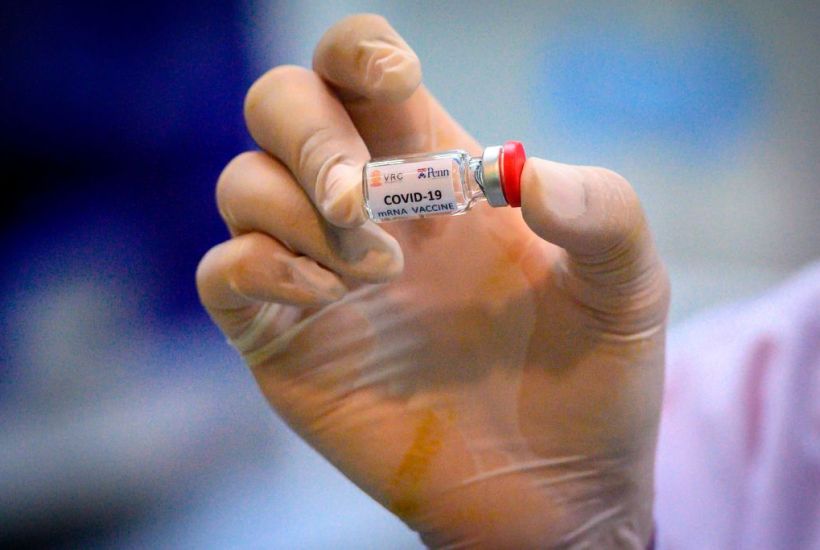The mandatory introduction of face masks in shops and a ban on families and friends from different households meeting in parts of northern England at a time when death rates and critical care admissions with Covid-19 are low, appears, on the surface at least, hard to explain. The original reason for lockdown – to protect the NHS – seems to have been replaced by weaker reasons to impose recurrent restrictions. This is worrying, not least because of the possibility that the Government could broaden out this approach of introducing policies based on low-grade evidence. Could it do the samein mandating vaccinations before their effectiveness and safety profiles have been definitively determined?
Section 45E of the Public Health Control of Diseases Act of 1984, currently protects against mandating vaccines even during outbreaks here in the UK. However, in this environment, the Act begins to look precarious, particularly when society may consider repealing such laws to escape the burden of restrictions.
The recent evidence revealing appropriate T-cell and antibody responses to Oxford’s Covid-19 vaccine in an early-phase clinical trial, is an important milestone. The final hurdle in measuring effectiveness is whether the vaccine actually prevents infection. While vaccines often pass the milestone that Oxford achieved, many fail at this later stage. The reasons for this failure involve a combination of the vaccine not providing long-lasting protection against the virus (lack of efficacy) and not having enough virus circulating in the population to measure effectiveness (lack of prevalence).
Notable examples of the ‘lack of efficacy’ reason are the HIV vaccine and the Herpes Simplex Virus (HSV-2) vaccine; both having showed promising antibody responses in early-phase trials but subsequent late-phase trials showing no significant reduction in infection rates.
The ‘lack of prevalence’ reason is why some maverick scientists are entertaining the controversial idea of purposefully infecting vaccinated and non-vaccinated study groups with the virus (rather than waiting for natural infection) in ‘challenge trials‘. The idea is controversial because as well as posing an ethical problem, it poses a paradoxical problem. The ethical problem is giving something to a person that is known to cause harm and for which there is no clear cure. The paradoxical problem is that if scientists feel that young and healthy people can be safely infected with the virus then it undermines the rationale for having enforced lockdown upon the healthy population.
Just as important as effectiveness, is safety. The Oxford vaccine’s preliminary results indicate that there are no immediate serious adverse reactions to the vaccine. The vaccines that are routinely used in the UK today in childhood or adulthood are, in addition to being effective, generally safe.
Possibly the greatest safety concern during the history of vaccine development has been the risk to vaccinated patients of increased hospitalisations, compared to non-vaccinated subjects, on subsequent exposure to the virus due to antibody-dependent enhancement (ADE). This increased hospitalisation risk has been demonstrated in children given the dengue vaccine (dengue is a virus spread by mosquitoes in tropical climates) and which led to the Philippinesremoving the vaccine from their country. The problem is not isolated to the dengue vaccine but includes the H1N1 flu vaccineand the RSV vaccine amongst others. The mechanismof ADE is believed to involve the vaccine stimulating an immune response that causes the virus (or a similar virus) to become more damaging to the body when exposed to it in later life.
ADE has also been demonstrated in the SARS family of viruses (though not specifically SARS COV-2 which causes COVID-19) in animal research. Gain-of-function research (GOFR) involves altering pathogens to make them more virulentand has been justified by proponentsto evaluate potential treatment strategies. Opponents, on the other hand, fear that such research may become a biohazard. A GOFR published in 2015demonstrated that some vaccinated mice injected with an artificially created (hybrid) SARS virus had worse outcomes compared to unvaccinated mice exposed to the virus. The results reflected the group’s previous work and other groups’ workon similar vaccines against SARS COV viruses demonstrating increased pulmonary inflammation in vaccinated subjects on viral exposure.
These instances highlight the need to persevere with robust clinical trials to evaluate safety and effectiveness. The considerable investmentand fierce competitionin developing a Covid-19 vaccine means there is a higher chance than in previous years of making significant positive breakthroughs and this, despite the concerns outlined, should instil optimism.
Although China has been praisedby some for its response to the virus, it is vital that democratic governments do not become seduced in importing their authoritarian control measures under this pandemic’s pretext, especially as there are more civilised alternative public health strategies (Sweden, Hollandand South Korea, for example) whilst we await an effective vaccine, cure or way to live with the virus. Recent protests in Berlinforetell the friction that may become common place should restrictions conflict with western society’s democratic principles.
In my line of work, we have to counsel patients about the risks and benefits of a particular procedure or drug and allow them to make informed decisions about their treatment based on the evidence. Although the Government may have the best intentions at heart in pursuing mandatory public health policies, it is important to allow people to make their own informed decisions as autonomous individuals wherever possible; including when it concerns any potential vaccination strategy.
Got something to add? Join the discussion and comment below.
Get 10 issues for just $10
Subscribe to The Spectator Australia today for the next 10 magazine issues, plus full online access, for just $10.




















Comments
Don't miss out
Join the conversation with other Spectator Australia readers. Subscribe to leave a comment.
SUBSCRIBEAlready a subscriber? Log in